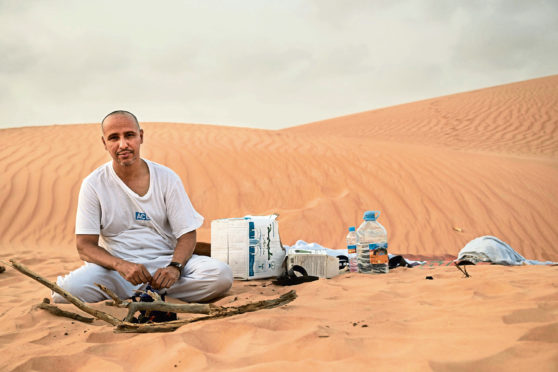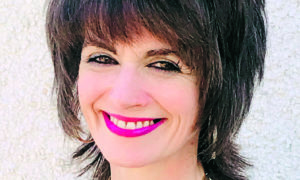It was the most unlikely of backgrounds to nurture friendship – the bleak sprawl of Guantanamo Bay detention camp, its metal fences standing like brooding sentinels across the plain, savage spirals of barbed wire jutting into the skyline.
Friendship might seem possible between two detainees.
They, after all, have shared experiences – incarcerated for years on end without charge, isolated in black holes for “misdemeanours”, being shaved and ridiculed and spat at.
But friendship between detainee and guard?
Mohamedou Ould Slahi, who wrote the best-selling memoir “Guantanamo Diary”, is small and slight, with a wide smile. He talks about the importance of being a good person. At 19, he visited Afghanistan before returning home to Mauritania.
After he received a call from his cousin, apparently made from al-Qaeda leader Osama Bin Laden’s cell phone, he became a CIA target. He was bundled out of his homeland and taken to the infamous American detention camp on the tip of Cuba that Biden, like Obama before him, has now vowed to close. Slahi was never charged with an offence. He remained in Guantanamo for 14 years.
Steve Wood, a former US Army sergeant, was just 24 years old when he was sent to Guantanamo and appointed to guard Slahi. It was emphasised to him that prisoners would be brutal men, full of anger and violence. They hated America. They hated him. You couldn’t turn your back on them.
“Then this little man walked up, shook my hand and said, ‘Very nice to meet you’,’” recalls Wood. “And I thought, what the hell is going on?”
Slahi’s first memory of Wood was that he offered him coffee, good coffee. Then asked if he wanted to play cards. But it is interesting that while Wood thought of them as strange friends of a kind, Slahi did not quite yet.
Not because he didn’t like Wood. He did. Importantly for friendship, he appreciated him. But, he notes: “It is hard to see someone as a friend when they have power over you.” Especially when that includes, “the ability to kill you with no consequences”.
Thirteen years later, a film crew has captured the reunion between Wood and Slahi in a short film, “My Brother’s Keeper”, which has been longlisted for a Bafta.
This time, Wood went to Slahi’s territory, Mauritania. There is something very touching about watching his preparations for Wood’s arrival – the makeshift bed on the floor, tucking sheets round a mattress to make it as comfortable as possible.
“Americans are babies! They need everything just so,” Salahi says affectionately, then adds more seriously: “It will be very rewarding to take care of him, because he tried to take care of me in prison.”
They make an incongruous pair. Slahi is 5ft 6in. Wood is 6ft 2in. Slahi, who watches American TV and uses American idioms, gives Wood traditional robes to wear in Mauritania. There is something in their interaction that transcends both their physical and cultural differences.
Slahi feels no animosity about spending 14 years in jail without charge. What good would that do? He had every reason to hate what Wood stood for but clearly, he didn’t look at what Wood stood for. He looked at who he was. “We transcended all the stereotypes, the hatred. We did that when it mattered most.”
There is something very important about this film, because the truth at its heart is about more than Wood and Slahi. It is about people and it is about nations – it’s about peace and diplomacy, and truth and justice.
It belies the accepted notion that subjugation brings power, and power brings strength. Slahi knew they could not truly be friends until they were equal. For his part, Wood did not want the power that imbalanced their relationship.
“I had the key to the door of his cell and that felt weird. There was a little bit of guilt that never went away.” When inequality is removed, the magic of human connection happens.
In a way, Slahi is still in prison, it is just that now, prison is Mauritania. He cannot leave the country, despite never being charged. Wood wants to return to see him with his family. At the airport, he embraces the man he once guarded, saying in his ear: “You are my brother.”
Slahi watches him disappear, a free man when he is not. Yet there is no resentment.
“I believe in humanity,” he says. “I think it is kind of cool we can cross the divide.”

